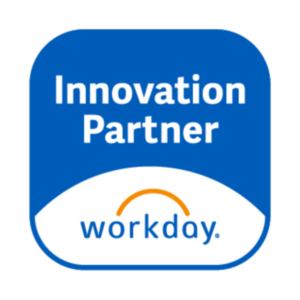Recently, UK law firm Shoosmiths said that cyberbullying claims have “increased substantially” since the onset of COVID-19. “With more of us working from home and using online platforms than ever before to connect with colleagues and clients, the blur between home and work life has seen many abandon office etiquettes.”
The implications for any business are significant. Not just in terms of court cases and legal fees but also brand and reputation, talent retention and acquisition, and the performance of your employees. Toxic work environments are not good for promoting productivity because they become self-fulfilling negative patterns. If bad behavior is not addressed it becomes ‘acceptable’ or at least tolerated, encouraging others to behave in the same way.
Interpersonal misconduct is already widespread. In February 2020 Vault Platform polled 1,000 employees in the US and UK and 100% said they had experienced or witnessed some kind of misconduct – including bullying, sexual harassment, or discrimination, during their career.
When asked What type of workplace misconduct did you witness or experience? Bullying was the highest response at 70%.
With changes in the way we work due to social distancing and reduced in-person interaction, we’re seeing the bad aspects of interpersonal communication move online in sync.
Many workers were already heavily reliant on messaging apps such as Slack and Whatsapp and more still engage with each other on social media both professionally and personally. This blurs the boundary between working hours and personal time and sometimes this interaction takes a negative turn.
Some 30% of UK respondents to a survey by Totaljobs in 2018 said they had been victims of workplace discrimination on internal messaging platforms and 30% of those who do experience cyberbullying, harassment, or discrimination suffer in silence because they are not confident they will be supported by their employer. Around 8% even see leaving their job as their best option.
Indeed, our own survey of employees found that most choose not to report misconduct because 51% are worried it would affect their job and 43% feel it would not be taken seriously.
For those experiencing these concerns, the issue can be compounded by isolation and its effects on an individual’s mental health. Isolation affects performance, relationships with colleagues, and the company as a whole. A number of studies have indicated that UK businesses lose hundreds of millions of pounds every year due to work-related stress, depression, and anxiety and during a time of social distancing in our communities, isolation can quickly have a negative impact on workers, their performance, and how they show up for one another. Isolation can exacerbate feelings of being “out of sight, out of mind” and increase miscommunications as email and Slack messages are easily misinterpreted without the visual cues we rely on in person. In cases of intentional bullying, it’s also easier to ‘forget’ to include someone on a meeting invite for a Zoom call, or hold meetings that exclude people in private chats.
When it comes to managing your cyber-culture, just as with any other form of interaction, employees should be encouraged to Speak Up and flag hostile behavior experienced digitally as not acceptable in the workplace. Employees that witness discrimination, even if they didn’t experience it themselves, such as in a Slack channel or chat group should also be encouraged to record details of the incident, including date, time and location.
Here are three considerations on how your organization can go about tackling the growing issue of discrimination and bullying across internal communication channels:
- Remind your employees of your organization’s discrimination and harassment policies and ensure that these are appropriate for a remote-first culture (i.e. how they apply to discrimination across messaging apps).
- Encourage a speak-up culture: stigmatizing issues (such as with race-related discrimination due to COVID-19) can be challenging for employees to report. Without effective reporting tools in place, many will suffer in silence. Ensure leadership visibly support speaking up and set the right example.
- Reasonable steps to prevent discrimination and harassment: Typically, employers will only avoid liability in the event of a discrimination case if they can show they have taken “all reasonable steps” to protect employees. The implementation of an effective reporting tool helps enterprises meet this requirement by offering employees a solution for reporting sensitive issues that take place in person or digitally.




